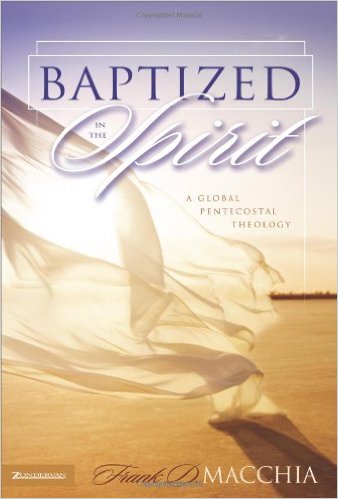 Selection: The Church Dogmatics II/2:103-115, Jesus Christ, Electing and Elected.
Selection: The Church Dogmatics II/2:103-115, Jesus Christ, Electing and Elected.
In its simplest and most comprehensive form the dogma of predestination consists, then, in the assertion that the divine predestination is the election of Jesus Christ. But the concept of election has a double reference—to the elector and to the elected (103).
For Barth, Jesus Christ is the electing God and the elected human, both the subject and the object of divine election. He is the electing God together with the Father and the Holy Spirit, and it is with this emphasis that Barth begins his exposition:
It is true that as the Son of God given by the Father to be one with man, and to take to Himself the form of man, He is elected. It is also true that He does not elect alone, but in company with the electing of the Father and the Holy Spirit. But He does elect. The obedience which He renders as the Son of God is, as genuine obedience, His own decision and electing, a decision and electing no less divinely free than the electing and decision of the Father and the Holy Spirit. Even the fact that He is elected corresponds as closely as possible to His own electing. In the harmony of the triune God He is no less the original Subject of this electing than He is its original object. … Of Jesus Christ we know nothing more surely and definitely than this—that in free obedience to His Father He elected to be man, and as man, to do the will of God. If God elects us too, then it is in and with this election of Jesus Christ, in and with this free act of obedience on the part of His Son. … It is in Him that the eternal election becomes immediately and directly the promise of our own election as it is enacted in time, our calling, our summoning to faith, our assent to the divine intervention on our behalf, the revelation of ourselves as the sons of God and of God as our Father, the communication of the Holy Spirit who is none other than the Spirit of this act of obedience, the Spirit of obedience itself, and for us the Spirit of adoption (105-106).
In the divine harmony of the eternal will of the Trinity, God determined to be God only in union with humanity in the person of Jesus Christ. The eternal Son of God for his part, was obedient to this divine will, determining himself and being determined for this particular union of God with humanity. His obedience was his own electing—his choosing to be incarnate, to be God-with-us—and his election, his being elected. And in his election we find the only ground of our own election, its promise, and its enacting in time.
In the small-print discussion which follows these assertions Barth insists first, on the basis of a number of texts in John’s gospel, that the action of Jesus the Incarnate in choosing and calling his disciples is itself the action of God’s election:
In the light of these passages the electing of the disciples ascribed to Jesus must be understood not merely as a function undertaken by Him in an instrumental and representative capacity, but rather as an act of divine sovereignty, in which there is seen in a particular way the primal and basic decision of God which is also that of Jesus Christ (106).
Second, he engages in historical discussion to argue that Jesus Christ is not simply elected passively, that is, with respect to his human nature, but is also actively the electing One (106-115). Barth’s motive in prosecuting this argument is pastoral, concerned with Christian assurance: if Christ is only the elect and not also electing, then we must look elsewhere than Jesus Christ to find the ground of our election, and indeed will confront only mystery.
And of the reality of that mystery we know nothing. We cannot even believe it. In face of it we can only attempt to create the necessary knowledge by constructing a decretum absolutum. In such circumstances predestination is not only a higher something behind and above the covenant effected and revealed in the divine-human person of Jesus Christ. In its very essence it is something quite different from this person. It is a hidden decree which we can never recognise as divine and to which we cannot possibly be required or advised to entrust ourselves (107).
For Barth, the election of Jesus is truly the “light of predestination” for us too, but only if Jesus Christ is the subject as well as the object of election: only, that is,
if we can be absolutely certain that in Jesus Christ we have to do immediately and directly with the electing God. If this is not the case, we are exposed always to the doubt that in the election we have to do perhaps with the will of a God who has not bound Himself in covenant with us and who is not gracious towards us (108).
In this section Barth explores the idea of election found in Thomas Aquinas, and over against Thomas’s view he calls Augustine and, especially, Athanasius. He laments that Athanasius’ insight had no continuing influence and development in the history of theology with respect to this question. The Reformers, too, failed to see that Jesus Christ must be the electing God with the result that all their attempts at spiritual consolation direct us elsewhere than Jesus Christ.
How can we have assurance in respect of our own election except by the Word of God? And how can even the Word of God give us assurance on this point if this Word, if Jesus Christ, is not really the electing God, not the election itself, not our election, but only an elected means whereby the electing God—electing elsewhere and in some other way—executes that which He has decreed concerning those whom He has—elsewhere and in some other way—elected? The fact that Calvin in particular not only did not answer but did not even perceive this question is the decisive objection which we have to bring against his whole doctrine of predestination. The electing God of Calvin is a Deus nudus absconditus [“purely hidden God”]. It is not the Deus revelatus who is as such the Deus absconditus, the eternal God. All the dubious features of Calvin’s doctrine result from the basic failing that what was in the beginning with God must be sought elsewhere than in Jesus Christ (111).
Barth agrees with the Reformed doctrine in so far as it insists that the origin and eternal ground of election must be sought in God. He rejects the tradition, however, insofar as it attributes this eternal ground to the will of the Father apart from and prior to Jesus Christ. For the Reformed, the will of the Father to save (only some) is primary and first, and the election of Jesus Christ is reduced to a means for the accomplishing of this end. The Reformed doctrine was, therefore, “Christless,” a “false start,” which but for a doctrinal and pastoral inconsistency, could have issued only in mysticism or moralism (113). Therewith Barth identifies his central theological move with respect to his own doctrine of election:
And the possibility of such a happy inconsistency should not prevent us from recognising this false start for what it was. Nor must it encourage us to perpetuate the error. It must encourage us rather to correct it, replacing the doctrine of the decretum absolutum by that of the Word which was in the beginning with God (113-114).
 The first issue of a new magazine “connecting” science and faith has been released in the UK. The opening article is by our good friend, Vicki Lorrimar.
The first issue of a new magazine “connecting” science and faith has been released in the UK. The opening article is by our good friend, Vicki Lorrimar.


